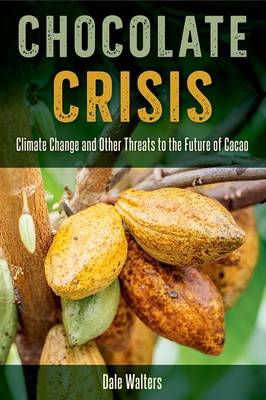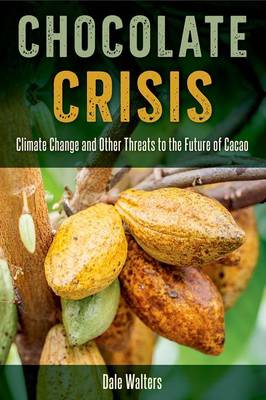
- Afhalen na 1 uur in een winkel met voorraad
- Gratis thuislevering in België vanaf € 30
- Ruim aanbod met 7 miljoen producten
- Afhalen na 1 uur in een winkel met voorraad
- Gratis thuislevering in België vanaf € 30
- Ruim aanbod met 7 miljoen producten
Chocolate Crisis
Climate Change and Other Threats to the Future of Cacao
Dale WaltersOmschrijving
Chocolate is the center of a massive global industry worth billions of dollars annually, yet its future in our modern world is currently under threat. In Chocolate Crisis, Dale Walters discusses the problems posed by plant diseases, pests, and climate change, looking at what these mean for the survival of the cacao tree.
Walters takes readers to the origins of the cacao tree in the Amazon basin of South America, describing how ancient cultures used the beans produced by the plant, and follows the rise of chocolate as an international commodity over many centuries. He explains that most cacao is now grown on small family farms in Latin America, West Africa, and Indonesia, and that the crop is not easy to make a living from. Diseases such as frosty pod rot, witches' broom, and swollen shoot, along with pests such as sap-sucking capsids, cocoa pod borers, and termites, cause substantial losses every year. Most alarmingly, cacao growers are beginning to experience the accelerating effects of global warming and deforestation. Projections suggest that cultivation in many of the world's traditional cacao-growing regions might soon become impossible.
Providing an up-to-date picture of the state of the cacao bean today, this book also includes a look at complex issues such as farmer poverty and child labor, and examines options for sustainable production amid a changing climate. Walters shows that the industry must tackle these problems in order to save this global cultural staple and to protect the people who make their livelihoods from producing it.
Specificaties
Betrokkenen
- Auteur(s):
- Uitgeverij:
Inhoud
- Aantal bladzijden:
- 230
- Taal:
- Engels
Eigenschappen
- Productcode (EAN):
- 9781683401674
- Verschijningsdatum:
- 5/01/2021
- Uitvoering:
- Hardcover
- Formaat:
- Genaaid
- Afmetingen:
- 155 mm x 231 mm
- Gewicht:
- 498 g

Alleen bij Standaard Boekhandel
Beoordelingen
We publiceren alleen reviews die voldoen aan de voorwaarden voor reviews. Bekijk onze voorwaarden voor reviews.











